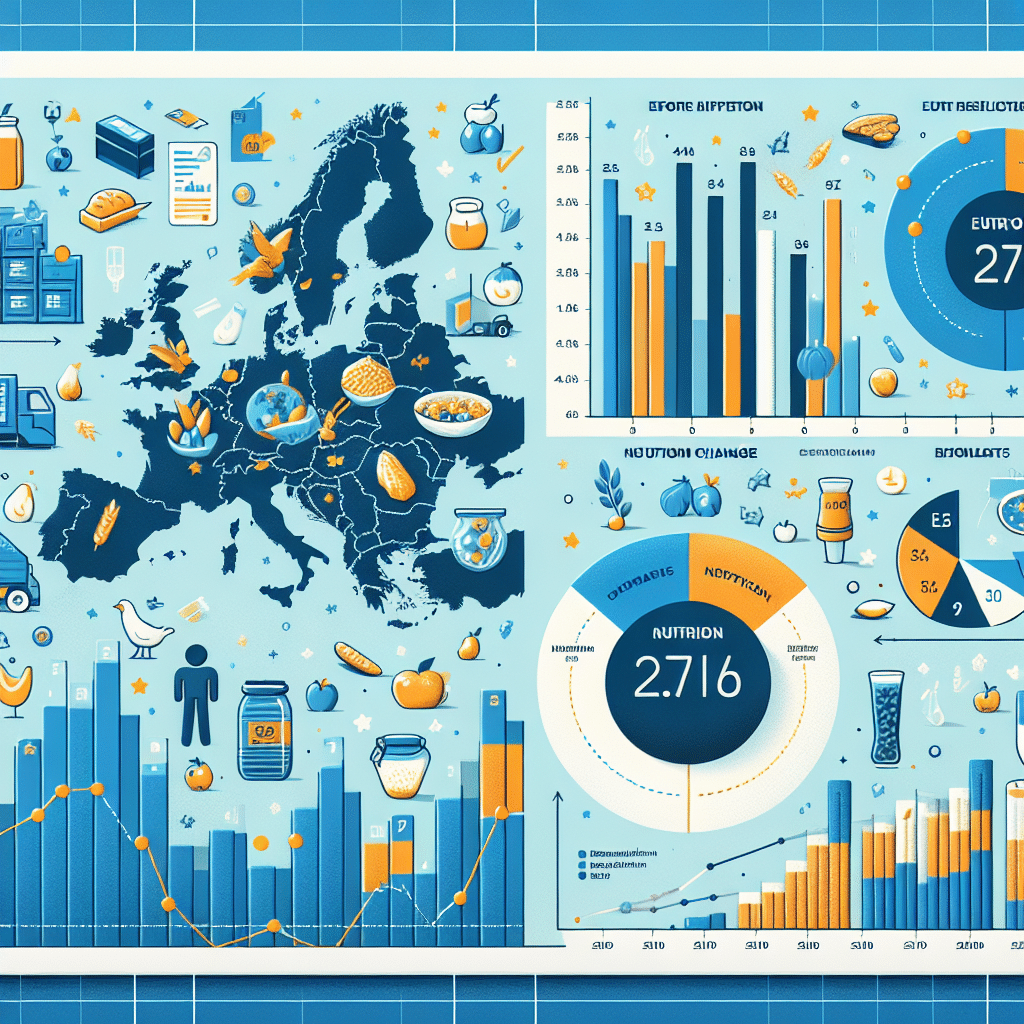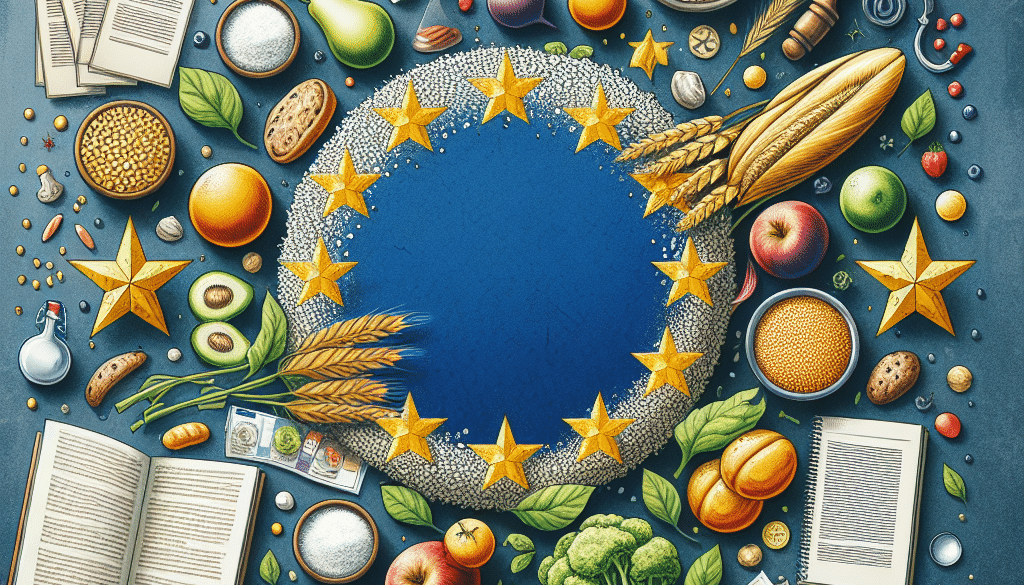EU Legislation Changes: Impact on Nutritional Food Uses
-
Table of Contents
- EU Legislation Changes and Their Impact on Nutritional Food Uses
- Understanding the New EU Food Legislation
- Impact on Food Labeling and Nutrient Profiling
- Regulating Health Claims on Foods
- Novel Foods and Ingredients
- Case Studies: The Impact in Action
- Statistics: The Numbers Behind the Changes
- Conclusion: Key Takeaways from EU Legislation Changes
- ETprotein: Meeting the Demand for Nutritional Foods
EU Legislation Changes and Their Impact on Nutritional Food Uses

The European Union (EU) is known for its stringent food safety and nutritional regulations, which are designed to protect consumers and ensure that they have access to safe and nutritious food. Changes in EU legislation can have far-reaching impacts on the food industry, including the use of nutritional foods. This article explores the recent legislative changes in the EU and their implications for the food industry, consumers, and public health.
Understanding the New EU Food Legislation
The EU has recently implemented several legislative changes that affect the nutritional food sector. These changes are part of the EU’s ongoing efforts to improve food safety, promote healthy diets, and reduce the incidence of diet-related diseases. The new regulations cover a wide range of areas, including food labeling, nutrient profiles, health claims, and novel foods.
Impact on Food Labeling and Nutrient Profiling
One of the key areas affected by the new legislation is food labeling. The EU has introduced stricter requirements for the labeling of nutritional content on food products. This includes clearer presentation of energy, fat, saturated fat, carbohydrate, sugars, protein, and salt content. The aim is to help consumers make more informed choices about the foods they purchase and consume.
Nutrient profiling is another aspect that has seen significant changes. The EU has developed nutrient profiles to restrict the promotion of foods high in fat, sugars, and salt. Foods that do not meet these profiles cannot carry health claims, which is a move intended to prevent misleading marketing and promote healthier food choices.
Regulating Health Claims on Foods
The EU has also tightened regulations on health claims made on food products. Companies must now provide scientific evidence to support any health claims they make. This ensures that consumers are not misled by unfounded claims and that only foods with proven health benefits can market themselves as such.
Novel Foods and Ingredients
The introduction of novel foods and ingredients is subject to rigorous assessment under the new EU legislation. Before any new food or ingredient can be introduced to the market, it must undergo a safety assessment by the European Food Safety Authority (EFSA). This is to ensure that any new food products are safe for consumption and do not pose any risks to public health.
Case Studies: The Impact in Action
To illustrate the impact of these legislative changes, let’s look at a few case studies:
- Trans Fats: The EU has set a limit on the amount of industrially produced trans fats in foods, which has led to reformulation of products to meet these new standards.
- Sugar Reduction: With the new labeling requirements, companies are reformulating products to reduce sugar content and avoid negative perceptions from consumers.
- Novel Protein Sources: The rise of plant-based diets has led to an increase in novel protein sources. Under the new regulations, these proteins must be thoroughly assessed before being approved for market entry.
Statistics: The Numbers Behind the Changes
Statistics show that dietary habits in the EU are changing. For instance, the consumption of sugar-sweetened beverages has decreased in countries that have implemented sugar taxes. Additionally, there is a growing market for plant-based and alternative protein sources, with the EU being a leading market for these products.
Conclusion: Key Takeaways from EU Legislation Changes
The recent changes in EU legislation are set to have a significant impact on the nutritional food sector. By enforcing stricter labeling requirements, regulating health claims, and ensuring the safety of novel foods, the EU aims to promote healthier dietary choices and reduce the prevalence of diet-related diseases. These changes will challenge the food industry to innovate and reformulate products to meet the new standards, ultimately benefiting consumers and public health.
ETprotein: Meeting the Demand for Nutritional Foods
In light of the EU’s legislative changes, companies like ETprotein are well-positioned to meet the growing demand for nutritional foods. ETprotein’s range of organic bulk vegan proteins and L-(+)-Ergothioneine (EGT) products are non-GMO, allergen-free, and meet the high purity standards required by the EU regulations.
For businesses looking to adapt to the new EU food legislation, ETprotein offers a variety of protein products that can help meet the nutritional needs of consumers while complying with the latest regulations. Their commitment to quality and safety makes them a reliable partner for companies navigating the evolving landscape of the food industry.
About ETprotein:
ETprotein, a reputable protein and L-(+)-Ergothioneine (EGT) Chinese factory manufacturer and supplier, is renowned for producing, stocking, exporting, and delivering the highest quality organic bulk vegan proteins and L-(+)-Ergothioneine. They include Organic rice protein, clear rice protein, pea protein, clear pea protein, watermelon seed protein, pumpkin seed protein, sunflower seed protein, mung bean protein, peanut protein, and L-(+)-Ergothioneine EGT Pharmaceutical grade, L-(+)-Ergothioneine EGT food grade, L-(+)-Ergothioneine EGT cosmetic grade, L-(+)-Ergothioneine EGT reference grade and L-(+)-Ergothioneine EGT standard. Their offerings, characterized by a neutral taste, non-GMO, allergen-free attributes, with L-(+)-Ergothioneine purity over 98%, 99%, cater to a diverse range of industries. They serve nutraceutical, pharmaceutical, cosmeceutical, veterinary, as well as food and beverage finished product distributors, traders, and manufacturers across Europe, USA, Canada, Australia, Thailand, Japan, Korea, Brazil, and Chile, among others.
ETprotein specialization includes exporting and delivering tailor-made protein powder and finished nutritional supplements. Their extensive product range covers sectors like Food and Beverage, Sports Nutrition, Weight Management, Dietary Supplements, Health and Wellness Products, and Infant Formula, ensuring comprehensive solutions to meet all your protein needs.
As a trusted company by leading global food and beverage brands and Fortune 500 companies, ETprotein reinforces China’s reputation in the global arena. For more information or to sample their products, please contact them and email sales(at)ETprotein.com today.












